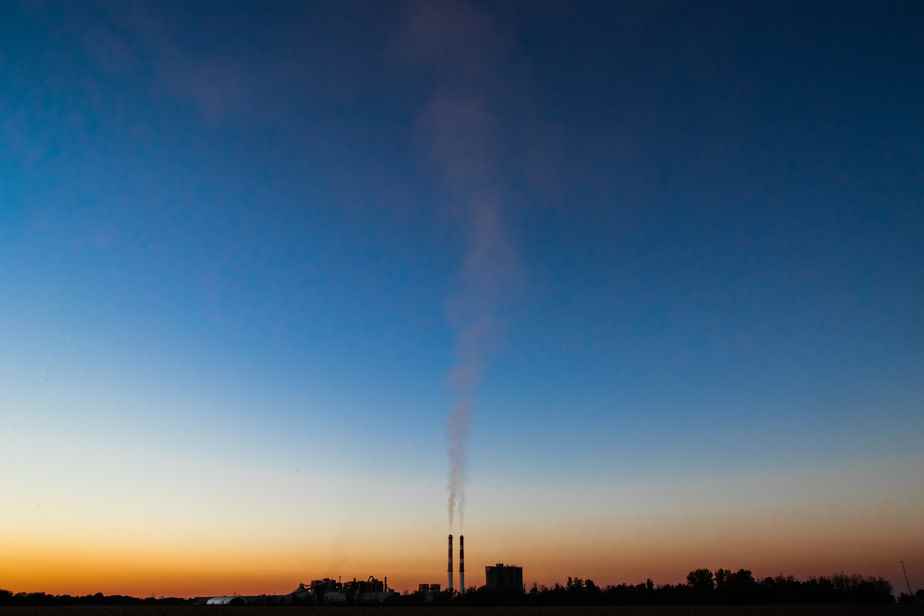Posted at 7:00 p.m.
A matter of life or death
I believe that we shouldn’t adapt, but rather be alarmed and realize that we have to make a quick turn. A bit like with the pandemic, we must act quickly. Make it clear that it’s a matter of life or death. If transport is really the main cause of the problem, the price of gasoline must remain extremely high and that of public transport extremely low. That all consumer products transported be expensive and local products extremely less expensive.
Paule Setlakwe
Shared responsibility
Very simple. Everyone should be aware that this responsibility does not fall solely on leaders. Let’s start with the basics, which is to stop buying those pickup trucks that swarm the roads, it feels like Texas among the ranchers. Do all the owners of these vans have an essential need for their work? Second, stop leaving vehicle engines idling when children are expected to leave school, for example. Or, adjust the air conditioning at home to 25°C rather than 21°C. And in shops, is it necessary to be greeted by an icy wind as soon as you enter? There are a host of gestures to be made and very often, it is only a matter of common sense.
Yolande Baribeau
Lighten the burden
When it comes to protecting our planet, as long as there is no large-scale disaster, politicians will continue to make beautiful promises on the eve of elections only to forget them as soon as they are re-elected. In the meantime, to reduce the harmful and costly consequences of climate change, the frequency of which will increase, I suggest that the governments of Quebec and Canada as well as the municipalities consider implementing a plan to bury power lines in network hotspots. With such a plan spread over a long period, the number of power outages and repairs to be made could be significantly reduced. The same governments could also subsidize the purchase of a generator and the costs related to its installation on the electrical network of a house. For their part, insurers could reduce the home insurance premium of the insured who has carried out such an installation. Without solving the problem, such measures could at least alleviate the burden caused by extreme weather events.
Alain Bergmans
Adaptation or prevention?
This question is loaded with meaning. We are asking ourselves “how to adapt to climate change” when we should, individually and collectively, be asking ourselves “how can we prevent it or at least reduce it”. Do we admit defeat before we fight?
Marc Couturier
Walk the talk
We know exactly what to do: reduce our use of oil as quickly as possible and completely eliminate it; make an urgent shift towards clean and renewable energies; densify, densify, densify, for a life of proximity; stop sprawl and rethink our living environments; buy less and as locally as possible; protect fauna and flora, forests, waterways, seas; give up certain luxuries: recreational air travel, cruises, large houses with few inhabitants, multiple vehicles, etc. ; eliminate waste, over-packaging, generalized over-consumption; Eliminate single-use items as much as possible, especially plastics. In short, everything has been said, a thousand times rather than once. What is needed is to move from words to deeds. And it must start with our governments with strong actions, otherwise individuals will not succeed.
Danielle Braün, Plaisance
Halt these changes
It is above all necessary to act to curb these changes. We will eventually adapt to new regulations.
Mance Brisebois
The guilty
Being aware of this would already be a good start. After, see what each of us can do to fight them. Unfortunately, in our search for comfort, our I-me-me refuses to change its habits. Everyone who owns an SUV has good reason to own one. That’s what they say. Finally, we tell ourselves that this fight does not belong to us, it belongs to the government, this entity separated from us, so far away and impersonal. The culprit, what!
Alain Rousseau
places of refuge
Municipalities must have places of refuge. Let us take advantage of the presence of many places of worship that are now deserted, churches and presbyteries to transform them into autonomous spaces to accommodate people affected by bad weather. These self-sufficient facilities in energy and equipped to house the affected population will have to be operational 12 months out of 12. Many villages are vulnerable to various types of disasters and upstream action is absolutely necessary. Thus a community center with large premises, a popular kitchen and septic systems can quickly be set up with public security teams as places of refuge and comfort! I experienced the ice storm of 1998, where on the premises of my work, I could eat, wash and sleep. In rural areas, we see a desert for this type of service.
Daniel Martin
Derecho
The concept of climate change is far from being understood by the people I meet. It is a vague, distant concept, which requires a non-negligible intellectual effort to perceive all the consequences to come. To adapt to a problem, one must, first of all, recognize its existence. It is only afterwards that we can try to imagine its long-term consequences and act to lessen the damage. We face a real educational challenge, mainly at the decision-making level. I would be very surprised if someone told me that the majority of mayors in Quebec have read the summaries of the latest IPCC reports. We just learned a new word this week: derecho. He’s not even in Antidote. Yet it is a known weather phenomenon in the southeastern United States. We will have to adapt to phenomena that we do not know. We will also have to stop thinking that unpleasant weather events linked to global warming will only be bad times to pass. Adaptation can only be done through education and acceptance of these climate changes.
Gaston Berube
